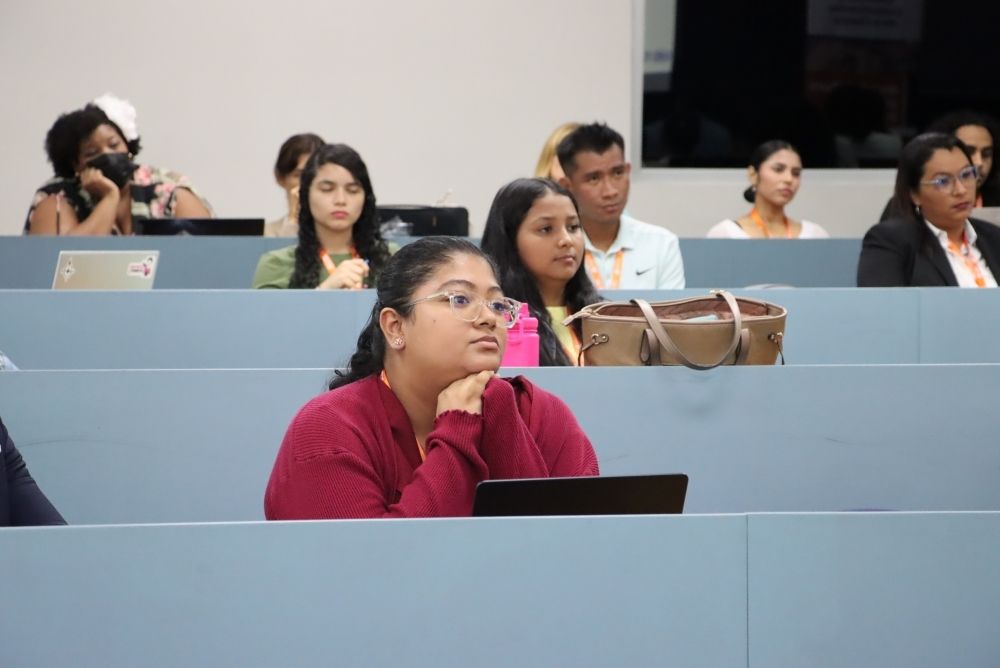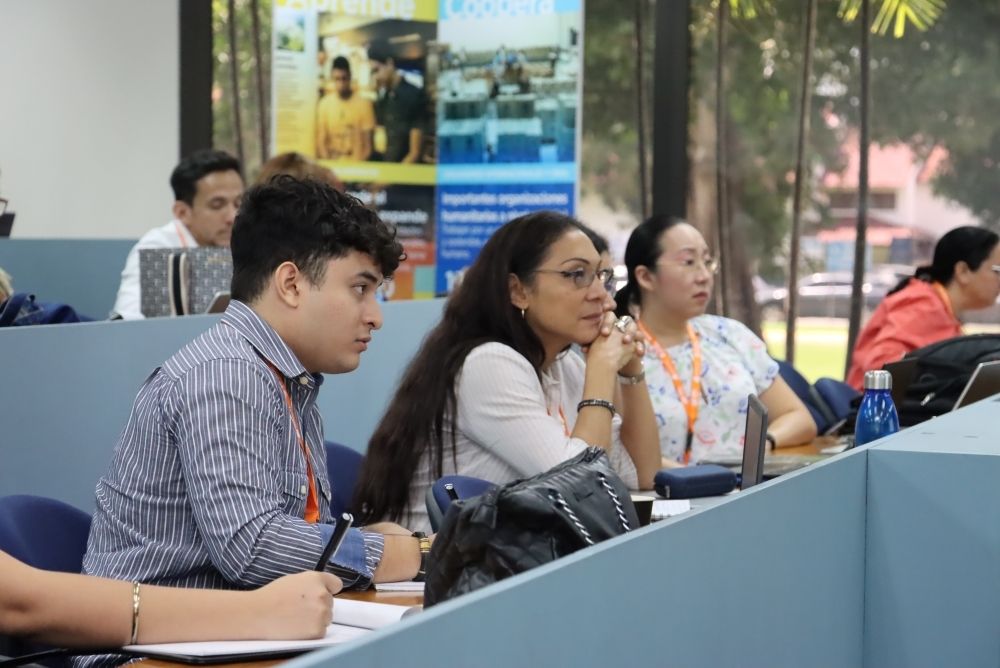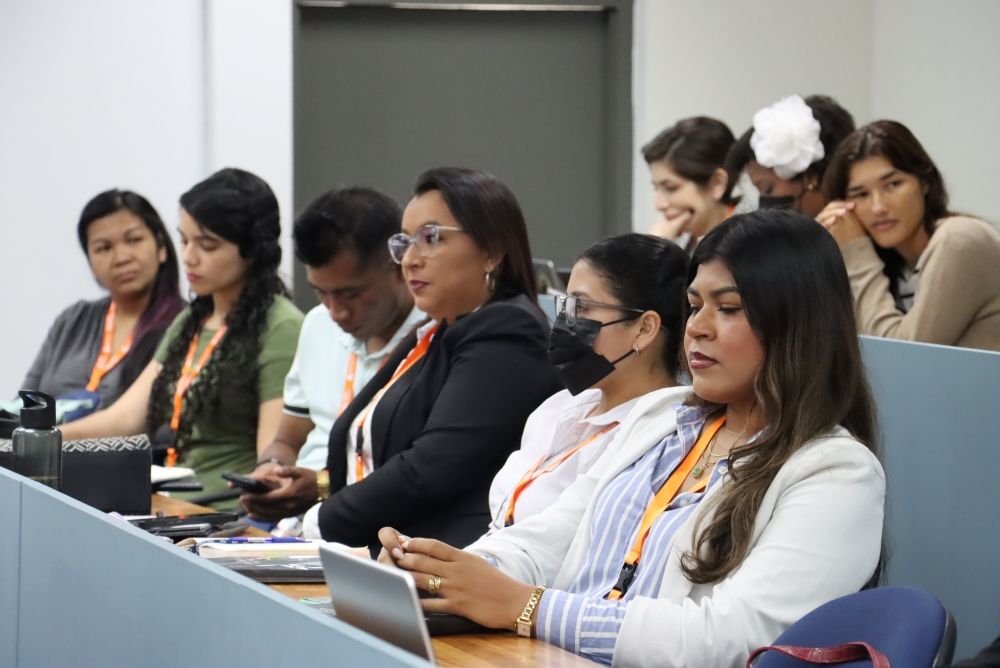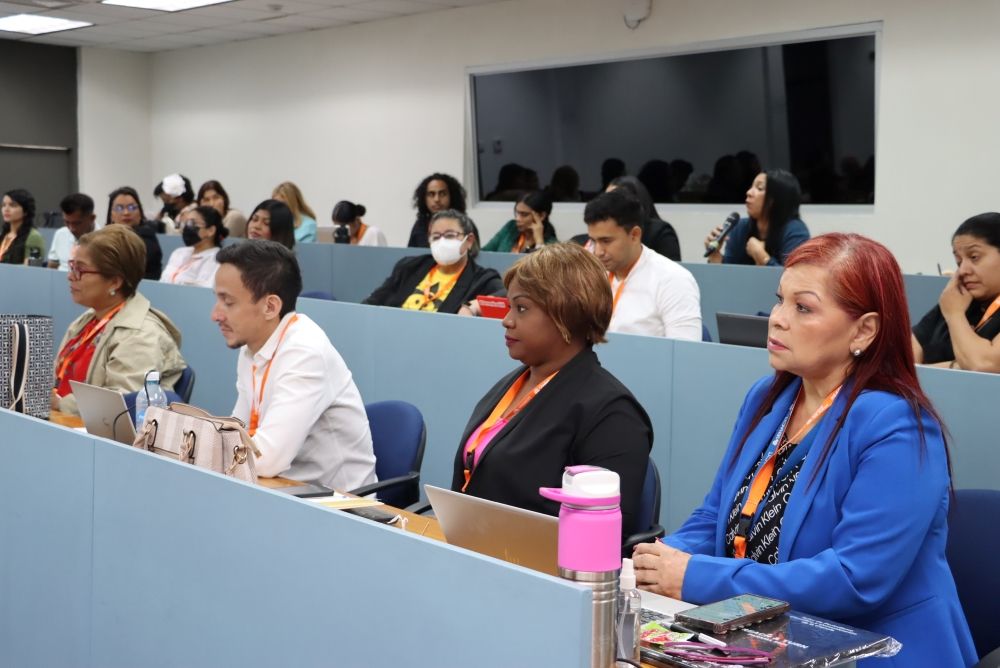The workshop on Scientific Journalism and Science Communication �SReach & Turn 2024⬝ organized by Senacyt and the City of Knowledge Foundation concludes successfully
Published 19 Diciembre 2024
This activity took place over three days in the Panamanian capital and was carried out within the framework of the National Strategic Plan for Science, Technology and Innovation (PENCYT 2019-2024) in which renowned international exhibitors and national communicators participated.
With the aim of highlighting the importance of improving communication skills in the scientific field, the National Secretariat of Science, Technology and Innovation (SENACYT), with the support of the City of Knowledge Foundation and the United Nations University (UNU-MERIT), held for the fifth time the Scientific Journalism and Science Communication Workshop “Reach & Turn 2024”.
This important activity also sought to foster collaboration between scientists and journalists; explore how to use evidence (data) to understand policy problems and inform relevant policy solutions; report thematically on the state of the art of Data Science for solving everyday problems, climate governance and the opportunities offered by the use of artificial intelligence (AI); and understand the role of policy briefings to develop reporting skills.
Rella Rosenshain, head of the Office of Information and Public Relations of Senacyt, said: “You are our true allies in this mission to strengthen the dissemination of science in Panama. This is a great task that unites us all: making science more accessible and understood, and having a real impact on our societies. We are very grateful to all the communicators, scientists and exhibitors for their important participation in this important event.”
Science journalism is not only a bridge between the scientific community and the public, but it is also a powerful tool for translating complex research into solutions and decisions that impact our daily lives. Journalists, researchers and students play a fundamental role in ensuring that science reaches everyone, and is understood and valued in its full potential, Rosenshain added.
For her part, Gricelda Melo, president of the National College of Journalists of Panama (Conape), said: “Continuous training allows journalists to rigorously address complex and relevant issues for society. We are grateful for the opportunity to participate in the Reach & Turn science journalism workshop, an experience that strengthens our commitment to quality communication in science.”
The workshop featured internationally renowned speakers such as: Diego Salama (Bolivia), a specialist in the development of strategic partnerships, program and project management, and as a liaison in the United Nations system. He manages institutional governance tasks and prepares reports for the UNU Council; Dante Licona (Mexico), with more than 15 years of experience in strategic communication to teams, organizations, and leaders, helping them communicate more effectively; Carlos Cadena Gaitán (Colombia), academic coordinator of the Center for Urban and Environmental Studies, EAFIT University; and Erich de la Fuente, senior researcher at Florida International University (FIU), who leads research projects that assess political, economic, and social risks in several Latin American and Caribbean countries.
The Scientific Journalism and Science Communication Workshop is developed within the framework of the National Strategic Plan for Science, Technology and Innovation (PENCYT 2019-2024), specifically in the Transversal Program of “Territorializing the benefits of STI according to the potential and needs of the country's regions to support productive transformation based on innovation, knowledge and technology.”
The workshop was held from October 21 to 23, 2024 at the City of Knowledge Convention Center and was attended by researchers, communication professionals and scientific journalists from various parts of the country.
This three-day workshop sought to bridge the gap between scientists and journalists through effective science communication, focusing on data science, climate governance and the opportunities presented by artificial intelligence (AI). Participants engaged in collaborative activities to deepen their understanding of these topics and produced a policy brief based on their discussions and analysis.





